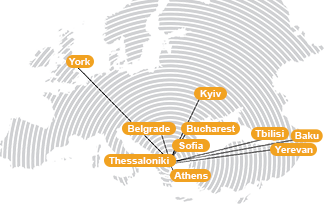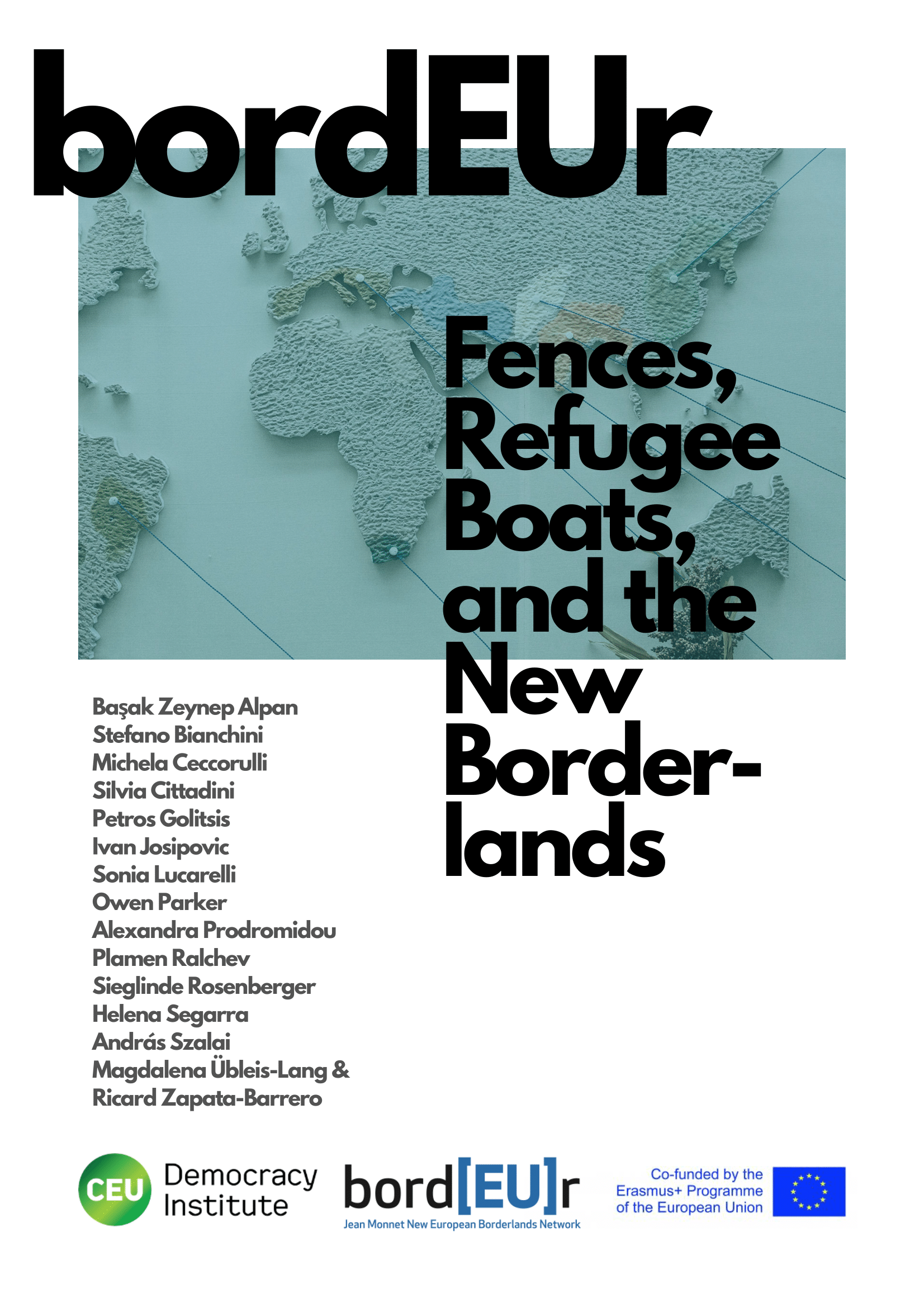Bord(EU)R is a collaborative research project of nine universities that documents and assesses the proliferation of new borders in the aftermath of the EU’s recent crises, with a special emphasis on the so-called migration crisis. The project analyzes the symbolic role of borders in ontological narratives (those of both the EU and its member states), as well as the bordering policies that these narratives enable.
Bord(EU)R documents the proliferation of new borders in the aftermath of the EU’s recent crises, with a special emphasis on the so-called migration crisis. We claim that the rebordering narratives and practices triggered by the migrant crisis (and migration management afterwards) should be understood in the context of the ontological insecurity (the insecurity of the Self) experience by the Union: the crises experienced in the last two decades have led the EU to fear for its own existence and have challenged its identity and legitimating narratives. The response, particularly in relation to migration, has been a shift towards securitized narratives (yet combined with a humanitarian narrative) and re-bordering practices. The latter have consisted both in (i) reinforcing (already existent internal and external borders and in (ii) externalizing border controls (through agreements with third countries).
All such processes (securitized narrative of the EU, securitized borders and externalization of borders control) have implications not only for the EU and its citizens, but also for third countries that, for instance, are requested to assume responsibilities in EU migration management. Moreover, such processes, triggered by the EU's sense of ontological insecurity, can generate a sense of ontological insecurity in third countries.
Project publications include:
An online edited volume entitled "Fences, Refugee Boats, and the New Borderlands: Making Sense of the European Union’s Emerging Internal and External Borders". Available
here.
An online entitled "Policy Paper Shifting Borders, Border Control Externalization and Solidarity in the EU and its Neighborhood". Available
here.
A Course Syllabus entitled "Fences, Refugee Boats, and ‘New Borderlands’: A course on Europe’s (re)emerging borders". Available
here.
An annotated bibliography entitled "Fences, Refugee Boats, and the New Borderlands: Making Sense of the European Union’s Emerging Internal and External Borders – An Annotated Bibliography'. Available
here.
The Conference Proceedings from the Bord(EU)R conference held in Stip in December 2021. The publisher is the University Goce Delcev in Stip. Available
here.






